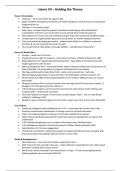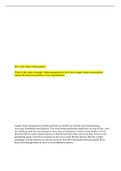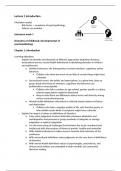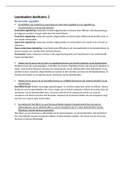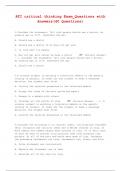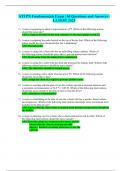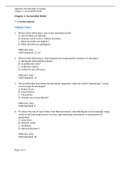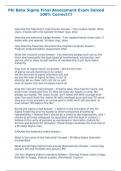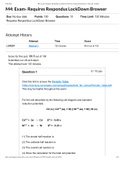Summary
Edexcel A-Level History: Unit 30: Henry VII Summary Notes
- Institution
- PEARSON (PEARSON)
In depth, detailed summary of all you need to know for Edexcel History A level —> Unit 30 - Lancastrians, Yorkists, Henry VII : on Henry VII. Includes: personality, claim, use of spies, bonds/recognisances, relationship with nobility, regional magnates, line of succession, Simnel conspiracy...
[Show more]
